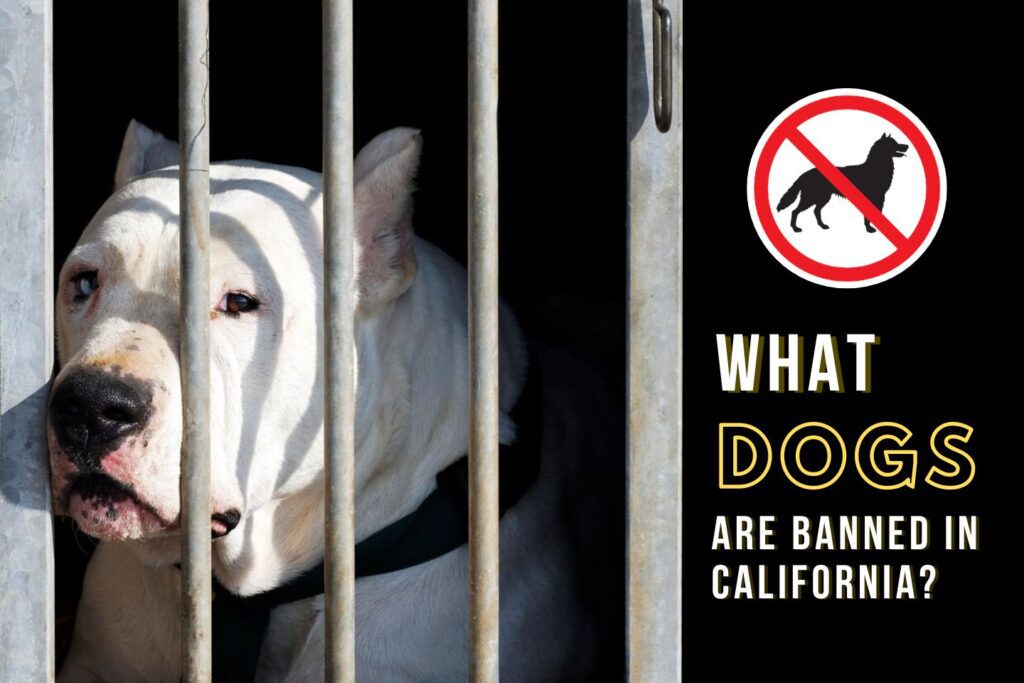In California, the rise in emergency department visits for dog bite treatments from 35,020 in 2010 to 38,657 in 2015 underscores a growing concern. This trend highlights the dangers posed by certain dogs and signals the need for heightened awareness. As incidents escalate, understanding what dogs are banned in California becomes crucial for public safety and personal well-being.
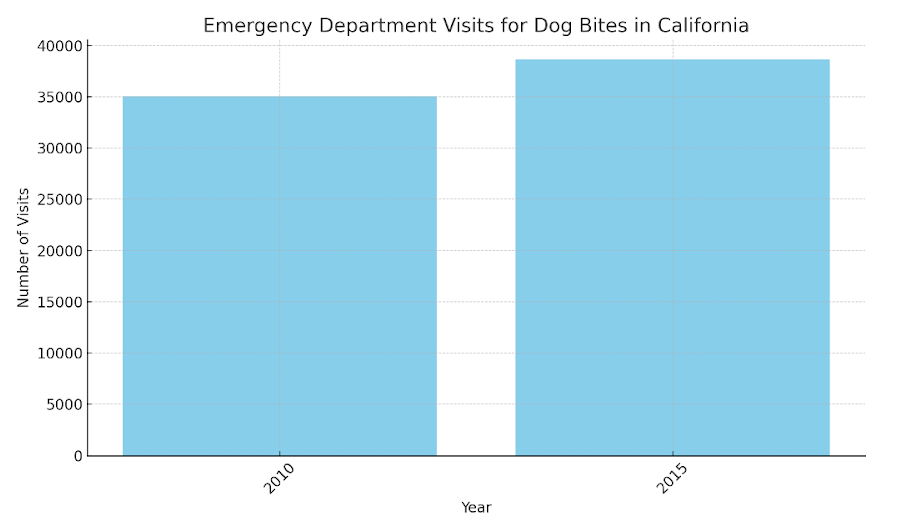

If you have been injured due to a dog bite, remember that you are not alone. In this blog, we will delve into California’s stance on dog breed regulations, linking these regulations to the broader legal landscape.
We aim to equip readers with essential knowledge for navigating legal claims following a dog bite incident.
What Dogs Are Banned in California?
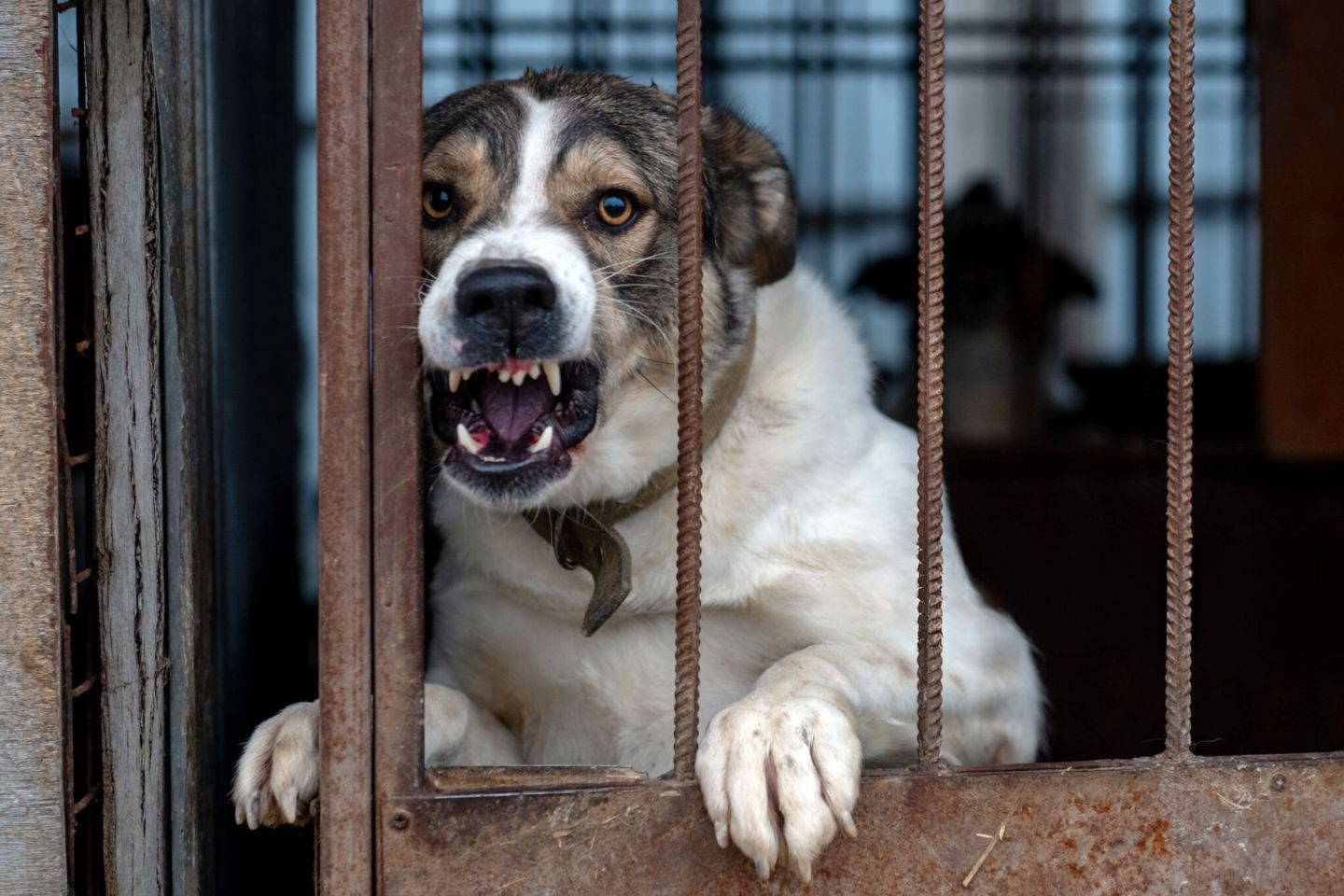

There’s a clear stance when it comes to what dogs are banned in California: the state does not impose any bans on specific dog breeds. However, California’s dog laws don’t prevent local municipalities from having breed-specific ordinances.
These local laws are designed for public safety, targeting breeds that are perceived to pose a higher risk. Here’s a closer look at how some cities in California approach breed-specific legislation.
San Francisco
- Legal Reference: Health Code Section 43
- Details: The ownership of American Pit Bull Terriers, American Staffordshire Terriers, and Staffordshire Bull Terriers is subject to stricter regulations compared to other breeds. Owners must adhere to special requirements designed to mitigate potential risks associated with these dogs.
Los Angeles
- Legal Reference: Los Angeles Municipal Code Section 53.34.4
- Details: Mandatory spaying and neutering are required for Pit Bulls and other breeds deemed “potentially dangerous” or “vicious.” This ordinance aims to reduce aggressive behaviors and enhance public safety.
San Diego County
- Legal References: San Diego County Code sections 62.610 and 62.620, and California Health and Safety Code 121690
- Details: The owner of every dog older than three months is required to vaccinate the dog against rabies before it reaches five months of age. This is a critical measure to prevent rabies transmission.
San Bernardino County
- Legal Reference: County Code 32.0108
- Details: Owners of loose animals are in violation. Dogs off their property must be restrained by a leash or enclosed in a vehicle, cage, or similar enclosure. Unrestrained animals may be impounded, requiring owners to pay a reclaiming fee.
Riverside County
- Legal Reference: Riverside County Ordinance No. 921
- Details: This legal code requires the spaying and neutering of all Pit Bulls and Pit Bull mixes aged four months and older.
Ventura County
- Legal Reference: Ventura County Animal Regulation
- Details: While not breed-specific, Ventura County enforces strict licensing and vaccination requirements for all dogs, coupled with a leash law.
Fresno County
- Legal Reference: Fresno County Ordinance Code, Title 9
- Details: This imposes a mandatory spay/neuter ordinance for dogs and cats over four months old, with certain exemptions. Although not breed-specific, this law aims to reduce the number of stray animals and mitigate aggression-related incidents.
Sacramento County
- Legal Reference: Sacramento County Code 9.36.061
- Details: The animal must be secured with a leash strong and durable enough that it cannot be broken by the animal, not exceeding six feet in length. Additionally, it must remain under the direct and continuous physical control of its owner or guardian at all times.
Long Beach
- Legal Reference: Municipal Code Section 6.16.310
- Details: This rule states that anyone in charge of a dog is responsible for ensuring that the dog is not allowed on prohibited premises, including public schools and beaches.
Understanding the legal framework related to dog bites can be complex. If you have been injured in a dog bite incident, reach out to the Personal Injury Center for support and guidance. We promptly connect you to knowledgeable personal injury attorneys in your region to make sure you get the compensation you deserve.
Understanding Liability in Dog Bite Incidents in California
In California, the laws surrounding dog bites are designed to protect victims by clearly defining liability. If you’ve been bitten by someone else’s dog, it’s important to understand who is held responsible for your injuries and under what circumstances.
This knowledge is crucial for pursuing compensation for any damages or injuries you’ve suffered. Here’s a detailed look at liability in dog bite cases within the state.
Strict Liability for Dog Owners
Under California Civil Code Section 3342, the dog owner is typically held responsible for any harm if their dog bites an individual, assuming the injured party was either in a public location or legally present in a private setting, including the dog owner’s property.
Circumstances Affecting Liability
- Landlord Liability: In certain cases, a landlord can be held liable for a tenant’s dog bite if it can be proven that the landlord knew the dog was dangerous and had the power to remove the dog but failed to do so.
- Parental Liability for Minors: If the dog is owned by a minor, the parents may be held liable for any injuries caused by the dog, under California’s parental responsibility laws.
- Negligence and Negligence Per Se: A dog owner can also be found liable under general negligence laws if it can be shown that the owner’s failure to exercise reasonable care to prevent the dog from biting resulted in injury. Negligence Per Se applies if the dog bite occurred because the owner violated a local animal control law, such as leash laws or requirements for “dangerous dogs.”
- Homeowner’s and Renter’s Insurance: Many homeowner’s and renter’s insurance policies provide coverage for dog bite liabilities. However, the insurance company may not cover certain breeds or may increase premiums following a bite incident.
- Multiple Dog Owners: When a dog has more than one owner, each owner can be held liable for the full amount of damages. This is particularly relevant in cases where ownership is shared between individuals in different households.
- Worker’s Compensation: If a person is bitten by a dog in the course of their employment (e.g., delivery personnel, postal workers), they may be entitled to worker’s compensation benefits in addition to pursuing a claim against the dog owner.
Exceptions in California Dog Bite Cases
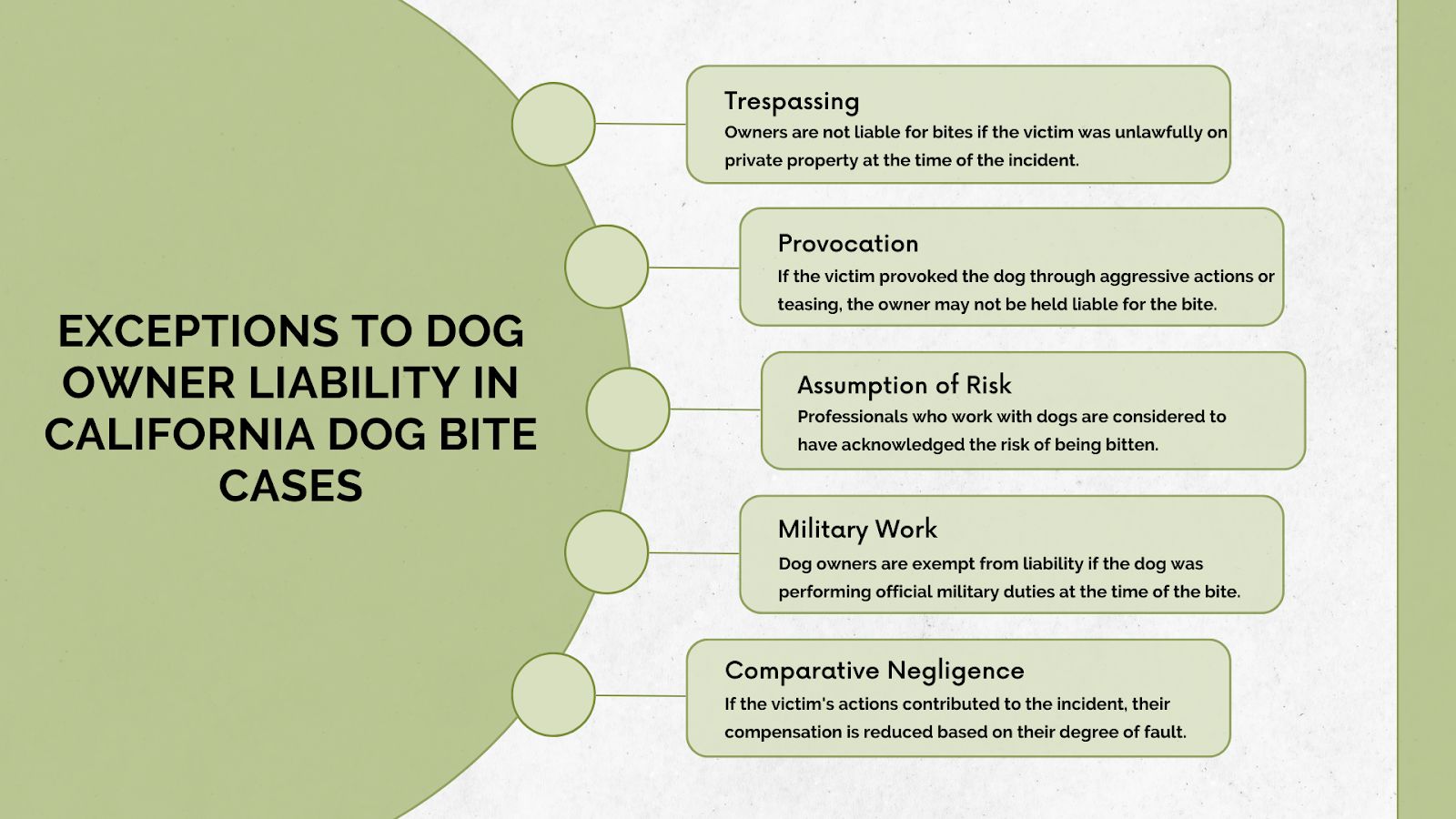

In California’s legal landscape, dog owners are generally held strictly liable for injuries caused by their dogs biting someone. However, there are specific exceptions where the owner might not be held responsible.
Trespassing
Under California Civil Code Section 3342, a dog owner is liable for bites only if the victim was bitten in a public place or was legally on private property. This implies that if the victim was trespassing on private property without permission at the time of the bite, the dog owner may not be liable for the resulting injuries.
Provocation
Provocation refers to situations where the victim provoked the dog, leading to the bite. Provocation can be physical (e.g., hitting or aggressively teasing the dog) or can occur in other forms that might cause a reasonable dog to react defensively. If an owner can prove provocation, they might not be held liable.
Assumption of Risk
This exception often applies to professionals who work with dogs, such as veterinarians, dog groomers, or animal control workers. These individuals are considered to have assumed the risk of being bitten due to the nature of their work.
The Dog Performing Police or Military Work
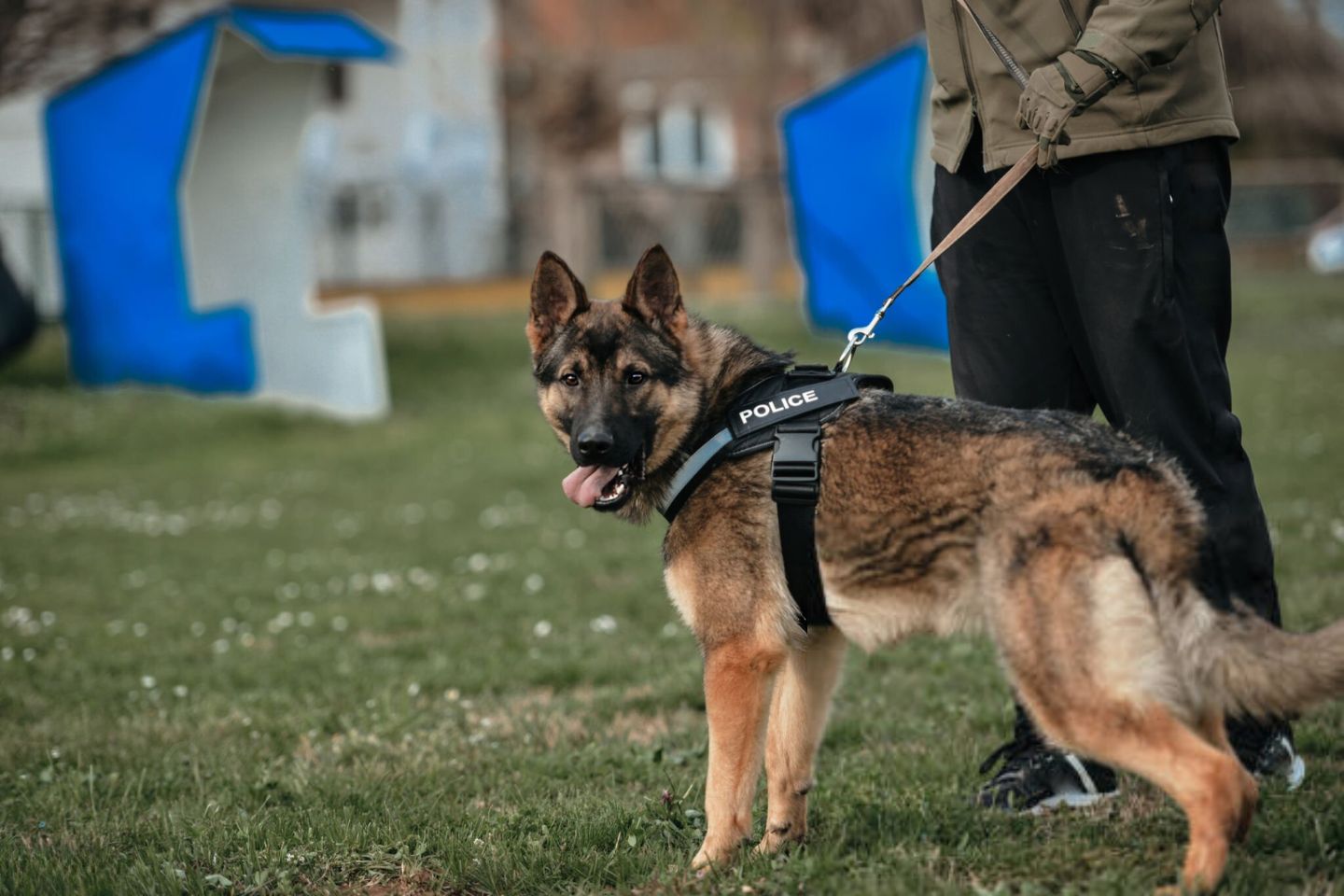

According to California Civil Code Section 3342, dog owners are not liable for bites if the dog was performing police or military work at the time of the incident. This exception recognizes the specialized roles these dogs play in public safety and national security tasks.
Comparative Negligence
As per California’s Comparative Negligence rule, if you are considered to be responsible for an incident, your compensation will be reduced. Specifically, if you were 30% at fault, your compensation will be reduced by 30%. In the case of dog bites, if the victim’s negligence contributed to the incident, their compensation might be reduced proportionally to their degree of fault.
If you’ve been affected by a dog bite, contact the Personal Injury Center. We’re here to connect you with experienced personal injury lawyers who can simplify the process for you.
Types of Compensation in Dog Bite Cases
In dog bite incidents, victims may be eligible for compensation to address the immediate and long-term effects of their injuries. As per California Penal Code 399 PC, owners of dangerous animals that cause serious harm could face felony charges, with penalties of up to three years in jail.
This legal context emphasizes the seriousness with which California treats dog bites and the range of compensation victims can pursue. Here are common compensations victims are entitled to in dog bite cases:
- Medical Expenses: Costs for immediate medical care, ongoing treatments, surgeries, medications, and future medical needs related to the injury.
- Lost Wages: Compensation for lost income due to time off work and diminished earning capacity if the injury affects future work abilities.
- Property Damage: Reimbursement for personal items damaged during the incident, such as clothes or glasses.
- Pain and Suffering: Compensation for the physical discomfort, emotional turmoil, anxiety, depression, and trauma suffered due to the bite.
- Loss of Quality of Life: Compensation for changes in lifestyle, loss of enjoyment in life activities, and any permanent disabilities.
- Disfigurement and Scarring: Costs associated with physical and psychological impacts of scarring, including cosmetic surgery.
- Punitive Damages: These are awarded in cases of the owner’s reckless or malicious behavior to punish them and discourage future conduct.
- Wrongful Death: Compensation for funeral expenses, lost financial support, and loss of companionship, in cases where the bite leads to death. This is specified under California Code of Civil Procedure Sections 377.60-377.62, which outline the types of damages that can be claimed in a wrongful death lawsuit.
- Home Modifications: Costs for necessary adjustments to living spaces to accommodate disabilities resulting from the injury.
- Rehabilitation Costs: Expenses for physical therapy, counseling, and any other rehabilitation services needed for recovery.
- Legal Fees: Compensation can include coverage for legal expenses incurred while pursuing the claim.
Navigating the aftermath of a dog bite can be overwhelming, especially when it comes to understanding the types of compensation you may be entitled to. At the Personal Injury Center, we’re committed to connecting you with experienced personal injury lawyers who can help ensure you receive the compensation you deserve. If you or a loved one has been a victim of a dog bite, reach out to us.
Key Takeaways
|
FAQs
Are Any Dogs Illegal in California?
No, California state law does not make any specific dog breeds illegal. Local ordinances, however, may have regulations for specific breeds.
Can I have a Rottweiler in California?
Yes, you can have a Rottweiler in California. Some areas may have specific regulations, so check your local ordinances.
Does California Have Dangerous Dog Laws?
Yes, California has laws such as California Civil Code Section 3342, which holds dog owners liable for bites in public places or to individuals lawfully in a private place. Additionally, Penal Code 399 PC outlines criminal liability for owners of dogs deemed dangerous.



